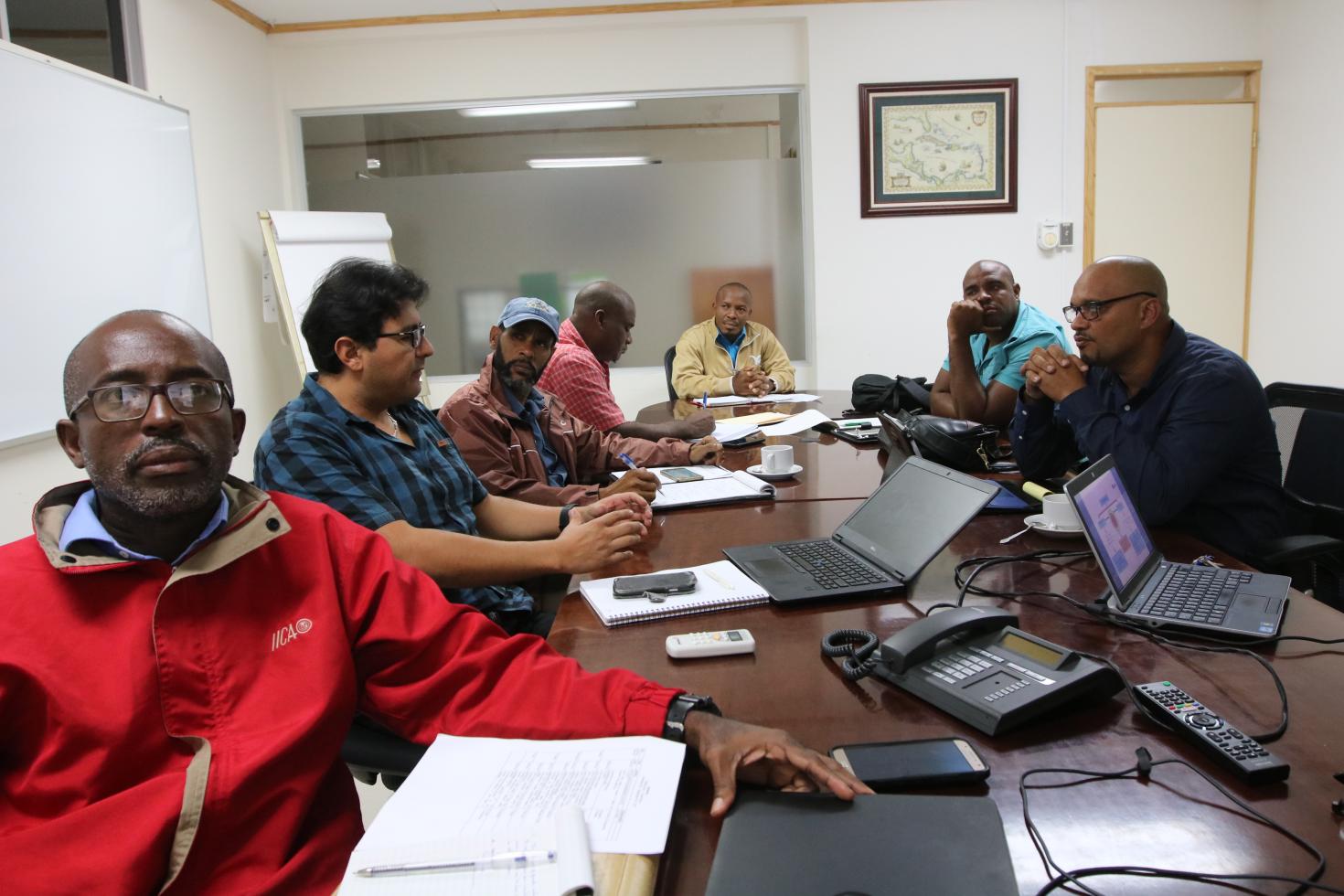Technicians from the Common Wealth of Dominica and St. Vincent and the Grenadines have enhanced knowledge of the organization and operation of a viable coffee industry through IICA’s support in the hosting of a coffee study tour to Costa Rica

San José, Costa Rica. Representatives of the Ministries of Agriculture from the Commonwealth of Dominica and St. Vincent and the Grenadines, together with members of staff of IICA, participated in a coffee study tour to Costa Rica over the period November 26 to December 02, 2017. The goal of the activity was expose the technicians to the operations of all levels of the coffee value chain in that country. This forms part of the actions of IICA to support the countries’ efforts to develop coffee as a viable commercial concern.
During the course of the week’s activities, participants were provided with the opportunity to visit and interact with coffee sector stakeholders across the Costa Rica. Included in this mix were visits to coffee propagation nurseries, coffee research facilities, coffee farms of varying sizes and with different farming system approaches and coffee plants involved in the processing of coffee berries for domestic and external markets. The technicians were also exposed to the practice of barism – the highly specialized practice of evaluating the cup quality of coffee.
The participants also had an opportunity to interact with the leadership of the Coffee Institute of Costa Rica (ICAFE) to gain an understanding of the governance arrangements for coffee at the national level and the comprehensive national efforts for coffee research and development which sustains the USD $350,000,000 coffee industry in Costa Rica.
The commitment of IICA in this exercise stems from a request from both countries to the Institute in 2016, to support their efforts to develop coffee as a commercial crop. IICA’s support came through the execution of a Rapid Response Action, which is an IICA mechanism for responding to urgent technical requests from member states, and which provided a comprehensive assessment of the potential for the development of the coffee subsectors. The activities now being undertaken are based on the recommendations of that assessment which provides for the development of the institutional capacities of the ministries of agriculture in both countries, to position them to support their national level effort to develop coffee. In this regard, IICA has worked closely with the Center for Tropical Agricultural Research and Investigation (CATIE), which was instrumental in ensuring the successful execution of the recently conducted tour.
This tour follows closely on a similar tour to Jamaica to learn from coffee industry stakeholders in that country. These initiatives have now positioned the ministries to comprehensively and systematically address the develop of coffee as a commercial concern.
As a result of this initiative, recommendations were made for the articulation of an action plan to address the short-term operational needs; for investment in increasing the knowledge and capacities of decision makers and technicians who would be responsible for supporting the industry; and for the acquisition of germplasm material to support production efforts.
The one-week coffee tour started on November 26.
More information:
Michael Dalton, IICA’s technical specialist in St. Vincent and the Grenadines.











